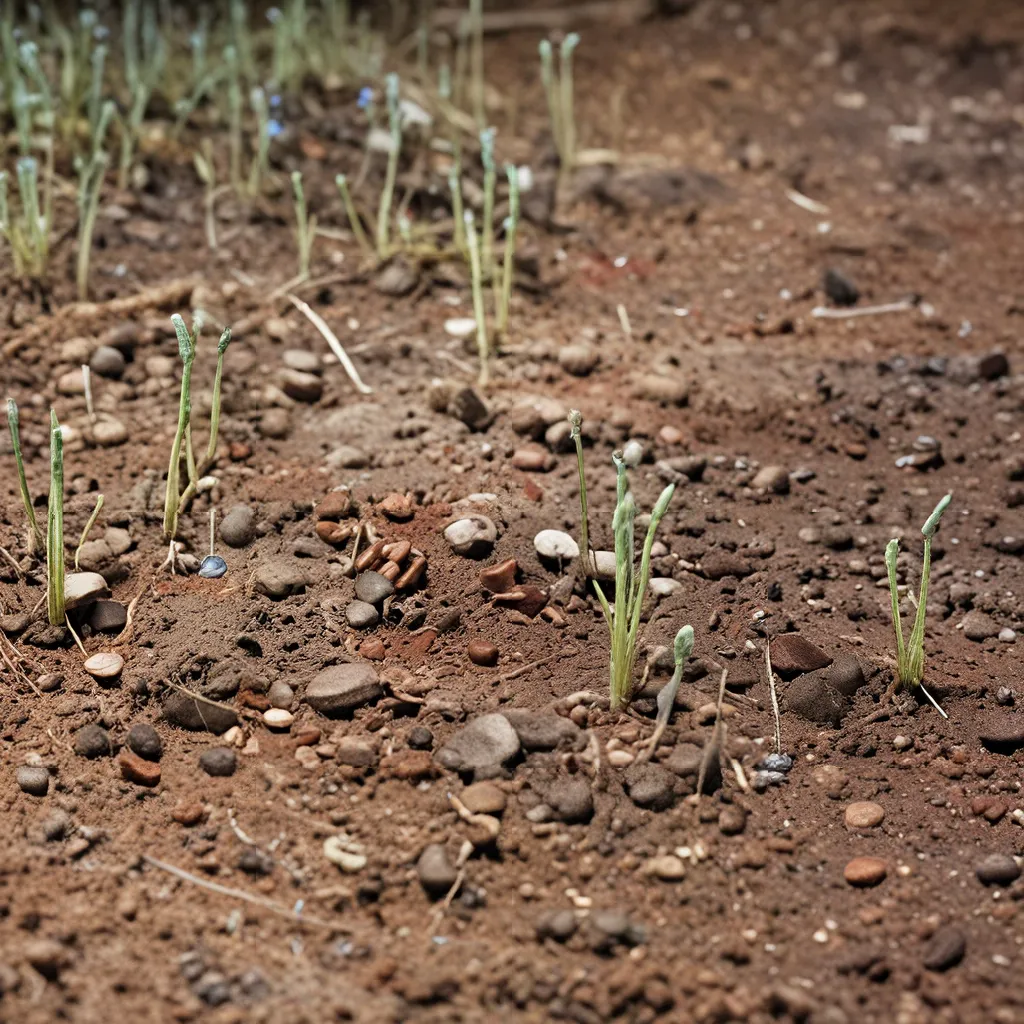
Unlocking the Secrets of the Microbial World
As I stand here, peering into the depths of this wastewater treatment plant, I can’t help but be amazed by the sheer complexity of the microscopic life teeming within. These unseen warriors, the humble microbes, are the unsung heroes of our modern sanitation systems, quietly yet powerfully transforming the muck and grime into clean, usable water.
But you know, it wasn’t always this way. Back in the day, we used to just dump all our waste directly into the nearest river or ocean, not giving a second thought to the consequences. Thankfully, we’ve come a long way since then, and now we’re harnessing the incredible capabilities of these tiny creatures to do the dirty work for us.
At Alpha Wastewater, we’re at the forefront of this microbial revolution. Our team of experts has been diving deep into the complexities of the microbial world, uncovering the hidden patterns and behaviors that could unlock the next generation of wastewater treatment solutions. And let me tell you, it’s been a wild ride!
The Predictive Power of Microbial Biology
One of the key areas we’ve been exploring is the concept of predictive biology. Sounds fancy, right? Basically, it’s all about using our growing understanding of microbial systems to anticipate how they’ll behave in different scenarios. Think of it like having a crystal ball for your wastewater treatment plant.
Now, I know what you’re thinking – “How in the world can we predict the behavior of these tiny, unpredictable critters?” Well, my friend, it’s all about integrating different fields of science, from biology and physics to engineering. By combining this diverse expertise, we’re starting to uncover the underlying quantitative principles that govern how microbes operate.
Just imagine being able to design and implement intricate synthetic gene circuits in bacteria, tailoring them to perform specific functions like sensing and actuation. Or assembling multi-species bacterial communities with a predefined composition, all working in harmony to tackle your wastewater challenges. This is the future we’re working towards.
The Microbial Balancing Act
But here’s the thing – microbes are innately complex. They’re not just simple little machines that we can program to do our bidding. Oh no, these guys have their own agendas, their own ways of interacting with their environment and each other. And that’s where the real fun (and challenges) begin.
See, these microbes are constantly engaged in a delicate balancing act, responding to the ever-changing conditions around them. They’re like a troupe of circus performers, each with their own unique skills, all working together to put on a show. And just like a circus, if one performer falls out of sync, the whole act can come crashing down.
That’s why we’ve been studying the impact of things like resource allocation, gene expression noise, and cellular decision-making on the overall performance of microbial communities. By understanding these underlying principles, we can start to predict how our wastewater treatment microbiomes will behave and engineer them to be more robust and efficient.
The Microbial Frontier
But the story doesn’t end there, my friends. Oh no, we’ve only just scratched the surface of what’s possible when it comes to harnessing the power of these microscopic marvels. Because as we delve deeper into the microbial frontier, we’re discovering that these tiny organisms are capable of so much more than we ever imagined.
Think about it – microbes can do things like self-organize into complex, spatially-structured communities, cooperate and compete with each other, and even communicate through quorum sensing signals. And the best part? We’re just beginning to understand how they do it.
As the authors of a recent review in Nature Reviews Microbiology point out, “Tasks that once seemed infeasible are increasingly being realized” when it comes to predictive biology and the manipulation of microbial systems. And let me tell you, the possibilities are mindblowing.
Embracing the Microbial Complexity
But here’s the thing – we can’t just treat these microbes like little robots that we can program to do our bidding. No, we need to embrace their complexity, understand their nuances, and work with them in harmony. Because the truth is, these microbes are far more intelligent and adaptable than we give them credit for.
Take, for example, the concept of microbial persistence. Yep, that’s right – these little guys can actually _survive and even thrive_ in the face of antibiotic treatments and other harsh conditions. And it’s not because they’re simply resistant – oh no, it’s because they’ve evolved these sophisticated strategies to _adapt and persist**_ in the face of adversity.
Now, I know what you’re thinking – “That’s great, but how does that help us with our wastewater treatment problems?” Well, my friend, the answer lies in understanding these microbial behaviors and harnessing them to our advantage. Because if we can learn to work with these microbes, instead of just trying to control them, we might just unlock the key to the most efficient, sustainable, and innovative wastewater treatment solutions the world has ever seen.
The Path Forward
So, where do we go from here? Well, my friends, the road ahead is both exciting and challenging. But I can tell you one thing – at Alpha Wastewater, we’re ready to embrace the microbial complexity head-on.
We’re investing in cutting-edge research, exploring the latest advancements in computational modeling, synthetic biology, and multispecies interactions. We’re collaborating with leading experts from around the world, sharing knowledge and insights, and pushing the boundaries of what’s possible in the world of wastewater treatment.
And you know what? I can’t wait to see where this journey takes us. Because I firmly believe that by harnessing the power of the microbial world, we can transform the way we think about and approach wastewater treatment. It’s not going to be easy, but with the right mindset and the commitment to innovation, I know we can create a cleaner, more sustainable future for all.
So, who’s ready to dive in and explore the microbial frontier with me? Let’s do this!